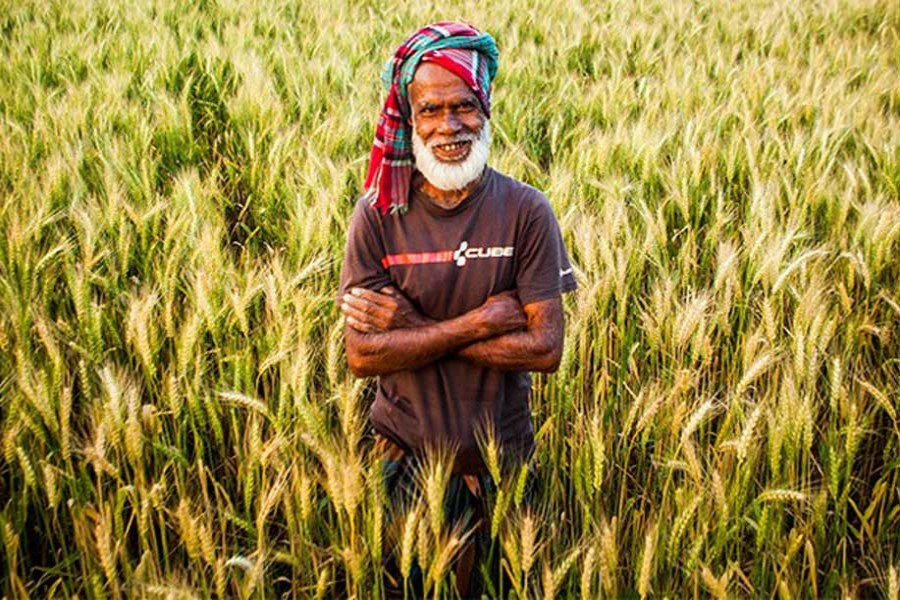Two new studies have confirmed that farmers can win both ways -- achieving a boost in harvests and helping to slow climate change.
One study says that they can successfully farm with techniques that can help slow global warming and add to the store of carbon sequestered in the soils around the globe.
And a second study confirms that a range of tested and sustainable practices is already stepping up yields in small farms worldwide, while dramatically reducing greenhouse gas emissions, soil erosion and pesticide use, reports UNB citing Climate News Network.
Both studies address a planetary dilemma. Global agriculture is at serious risk from global warming and climate change driven by profligate fossil fuel combustion.
But global agriculture - powered by greenhouse gas-emitting fossil fuels, ploughing, pesticides and herbicides - is also helping to drive global warming and climate change.
And while researchers have persistently argued that it should be possible both to feed the 9.0 billion people expected by 2050, and to contain global warming to no more than 2.0 degrees Celcious by 2100, such advances can be achieved only by massive changes in diet and expectations. But both new studies focus on what is both practicable and possible right now.
US researchers report in the journal Science Advances that they have identified a range of well-established farming practices that - if adopted by everybody - could capture enough carbon from the atmosphere and store it in the world's soils at a rate that could make a significant difference.
They suggest that simple approaches - cover crops, more thoughtful use of grazing animals, the planting of legumes on rangelands and so on - could, if coupled with dramatic reductions in carbon dioxide emissions, notionally add as much as 1.78 billion tonnes of carbon from the atmosphere to soils, lowering temperatures by 0.26 degree Celsius.
Since 1880, global average temperatures have already risen by about 1.0 degree Celsius.
More tentatively, they suggest that if farmers added biochar - the residue of crops burned to make charcoal - to their soils, this could reduce global warming by as much as 0.46 degree Celcious.
"These are very commonly used approaches, though people don't use them to sequester carbon - they are doing it for other reasons", said Whendee Silver, an ecosystem ecologist at the University of California at Berkeley, and one of the authors.
"Any time you increase the organic content of soils, you are generally increasing the fertility, water-holding capacity, sustainability, decreasing erosion and increasing general resilience to climate change. Sequestering carbon is a side benefit," he said.
In the same week, scientists from five nations reported in the journal Nature Sustainability that they could show that farming practices that show consideration for the global environment can and do deliver more food at lower costs.
Enthusiasts and environmentalists have been promoting "organic" or sustainable farming for decades.
They looked at data and reports from 400 sustainable intensification initiatives - agroforestry is one example - used on either more than 10,000 farms or over 10,000 hectares of farmland. Altogether, their survey covered an estimated 163 million farms.
And their study showed that productivity went up, biodiversity and ecosystem services were conserved, yet costs were down.
"Although we have a long way to go, I'm impressed by how far farmers across the world and especially in less developed countries have come in moving our food-production systems in a healthy direction," said John Reganold, a soil scientist at Washington State University in the US, and one of the authors.
Reganold said stronger government policies across the globe are now needed to support the greater adoption of sustainable intensification farming systems so that the United Nations Sustainable Development Goals endorsed by all members of the UN are met by 2030.
"This will help provide sufficient and nutritious food for all, while minimising environmental impact and enabling producers to earn a decent living," he said.


